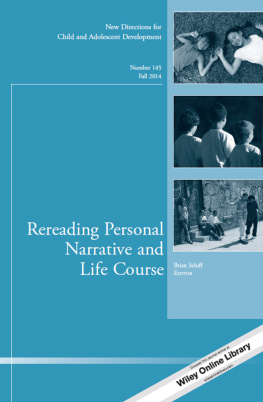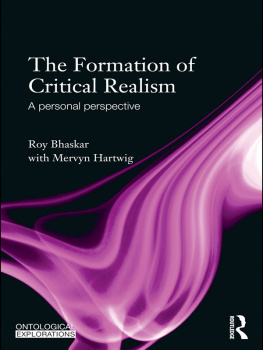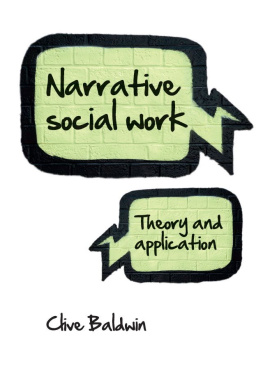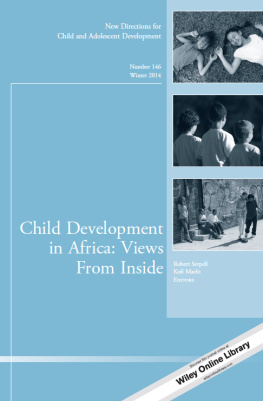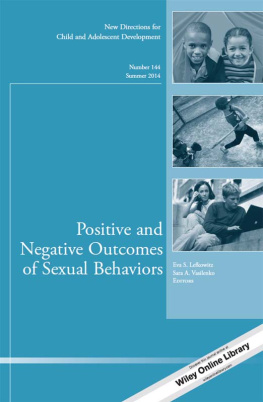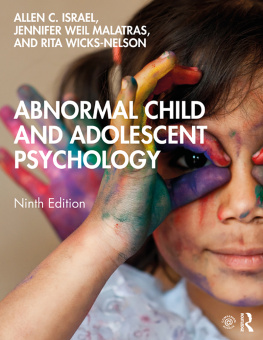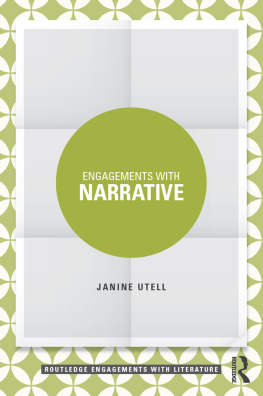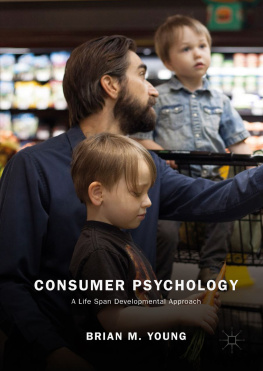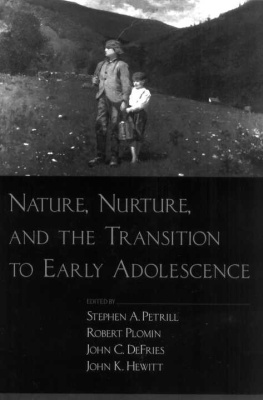
REREADING PERSONAL NARRATIVE AND LIFE COURSE
Brian Schiff (ed.)
New Directions for Child and Adolescent Development, no. 145
Lene Arnett Jensen, Reed W. Larson, EditorsinChief
2014 Wiley Periodicals, Inc., A Wiley Company. All rights reserved.
No part of this publication may be reproduced, stored in a retrieval system, or transmitted in any form or by any means, electronic, mechanical, photocopying, recording, scanning, or otherwise, except as permitted under Sections 107 or 108 of the 1976 United States Copyright Act, without either the prior written permission of the Publisher or authorization through payment of the appropriate percopy fee to the Copyright Clearance Center, 222 Rosewood Drive, Danvers, MA 01923; (978) 7508400, fax (978) 6468600. Requests to the Publisher for permission should be addressed to the Permissions Department, John Wiley & Sons, Inc., 111 River St., Hoboken, NJ 07030, (201) 7486011, fax (201) 7486008, www.wiley.com/go/permissions.
Microfilm copies of issues and articles are available in 16 mm and 35 mm, as well as microfiche in 105 mm, through University Microfilms, Inc., 300 North Zeeb Road, Ann Arbor, Michigan 481061346.
ISSN 15203247electronic ISSN 15348687
New Directions for Child and Adolescent Development is part of The Jossey-Bass Education Series and is published quarterly by Wiley Subscription Services, Inc., a Wiley company, at Jossey-Bass, One Montgomery Street, Suite 1200, San Francisco, CA 94104-4594. Postmaster: Send address changes to New Directions for Child and Adolescent Development, Jossey-Bass, One Montgomery Street, Suite 1200, San Francisco, CA 94104-4594.
New Directions for Child and Adolescent Development is indexed in Cambridge Scientific Abstracts (CSA/CIG), CHID: Combined Health Information Database (NIH), Contents Pages in Education (T&F), Educational Research Abstracts Online (T&F), Embase (Elsevier), ERIC Database (Education Resources Information Center), Index Medicus/MEDLINE (NLM), Linguistics & Language Behavior Abstracts (CSA/CIG), Psychological Abstracts/PsycINFO (APA), Social Services Abstracts (CSA/CIG), SocINDEX (EBSCO), and Sociological Abstracts (CSA/CIG).
Individual subscription rate (in USD): $89 per year US/Can/Mex, $113 rest of world; institutional subscription rate: $388 US, $428 Can/Mex, $462 rest of world. Single copy rate: $29. Electronic onlyall regions: $89 individual, $388 institutional; Print & ElectronicUS: $98 individual, $450 institutional; Print & ElectronicCanada/Mexico: $98 individual, $490 institutional; Print & ElectronicRest of World: $122 individual, $524 institutional.
Cover photographs: iStock.com/paulaphoto (top); iStock.com/vm (middle); iStock.com/ericsphotography (bottom)
Editorial correspondence should be emailed to the editorsinchief: Lene Arnett Jensen ().
JosseyBass Web address: www.josseybass.com
Schiff, B. (2014). Introduction: Development's story in time and place. In B. Schiff (Ed.), Rereading Personal Narrative and Life Course. New Directions for Child and Adolescent Development, 145, 113.
Introduction: Development's Story in Time and Place
Abstract
In this introductory chapter, I place Bertram J. Cohler's (1982) seminal essay Personal Narrative and Life Course in the context of the history of narrative psychology and developmental theory. I describe four theses from Personal Narrative and Life Course , which impacted developmental theory and research: (a) the self is a narrative project, (b) developmental periods have a distinct narrative character, (c) narratives are always told in (personal and historical) time, and (d) persons strive for coherence. I briefly describe the chapters to follow. However, my main goal is to argue for the implications of narrative for developmental science. Following Cohler, I argue that narrative has a central role to play in understanding human lives and can provide substantial benefit to developmental theory and research. A narrative perspective allows for a complex and nuanced description of developmental phenomena that accounts for the subjective and unpredictable nature of human lives. The narrative interpretation of experience is a primary human activity that alters the meaning of experience and potentially sets development on a new course, rendering the prediction of developmental outcomes a difficult venture. The narrative perspective provides detailed insights into how development unfolds, how persons actually interpret and reinterpret life in time and place, and can help psychologists to engage fundamental questions about the meaning of experience. 2014 Wiley Periodicals, Inc.
Rather than viewing personality development either in terms of continuing stability over time or in terms of a number of well-ordered phases or stages, lives seem to be characterized by often abrupt transformations determined both by expected and eruptive life events and by intrinsic, but not necessarily continuous, developmental factors, including biological aging. These events taking place across the life course are later remembered as elements of a narrative which provides a coherent account of this often disjunctive life course. The form of this narrative is based upon a socially shared belief in Western culture that all narratives, including history, literature, and biographies, must have a beginning, a middle, and an end related to each other in a meaningful manner. (Cohler, 1982, pp. 227228)
This volume is a reflection on life course developmental theory. In particular, the volume argues for the centrality of narrative interpretation for human development. As a point of departure, we begin from Bertram Joseph Cohler's (19382012) seminal contribution to our understanding of developmental psychology. During his prolific career, Cohler published over 200 papers and book chapters. But, Cohler's (1982) chapter Personal Narrative and Life Course is clearly one of the most influential. The chapter is one of the first published manuscripts in psychology on the process of storytelling for establishing selfhood and identity and one of the first essays on what would later become narrative psychology. In fact, the chapter was published before Theodore Sarbin (1986) coined the term narrative psychology or Jerome Bruner (1990) heralded the narrative turn in psychology.
Although Personal Narrative and Life Course is difficult to locate (PsycInfo doesn't even index the chapter), it has had a substantial impact on how developmental, personality, and clinical psychologists understand identity formation and mental health. But, the chapter can also be viewed as an innovative contribution to developmental theory, an alternative to other perspectives (e.g., biological, cognitive, evolutionary), which argues that development is an interpretative, narrative project.
The formulation, personal narrative and life course, elegantly summarizes three critical developmental processes. First, personal narrative captures the fact that persons are engaged in the process of interpretation, often self-interpretation, constantly figuring and refiguring their life and their past into a story of the self through time. Second, life course captures the fact that development is not only subjective and individual but also collective and contextual. Persons always find themselves inside a definite horizon of social and cultural conditions, which are historical and changing. Subjective interpretation and contextual forces are essential components for understanding development's path. But, finally, putting together personal narrative and life course highlights the tension between our place in the world and how we make sense of it.
Next page
